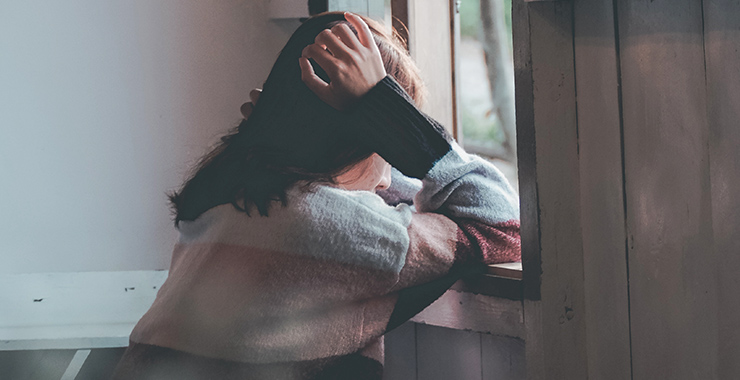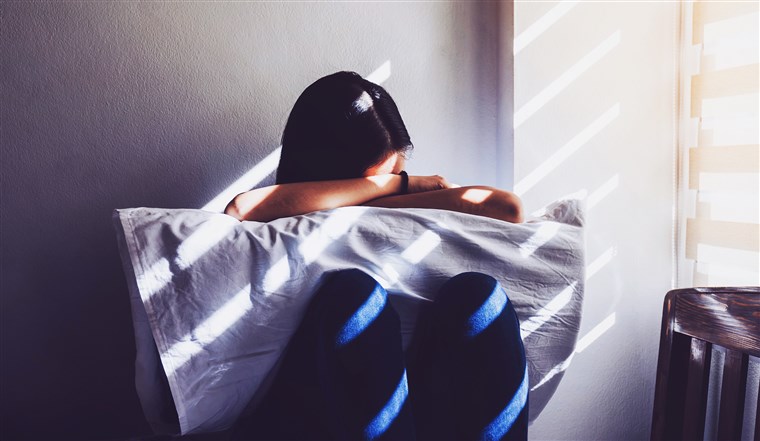With three more weeks of lockdown now on the horizon, what does it mean for people who suffer from depression and how can they deal with it?

It has been one week since the country declared lockdown. Although still suffering from light depression, Brianna felt it much easier to roll out of bed. Different from those busy days at work, she would welcome rays of sunshine, grab a coffee and wait for a video call from her families. Then the whole afternoon would be a movie tour with her lovely cat.
“I didn’t realize my symptoms alleviated until the fourth or fifth day after I stopped my work,” Brianna said, “It’s a great relief to take a break from the stressful schedule and enjoy a different pace of life.”
In fact, Brianna is not the only person who started to feel a glimpse of hope during this special period. According to Google Trends, there has been a sharp decrease in concern about depression symptoms over the past few weeks in the UK.
And the similar cases were found in other countries as well. Linyao, who worked as a broadcaster in China said: “I once thought it was impossible for me to be a broadcaster and depression sufferer at the same time. Everyday I pretended to be a cheerful guy, brought all kinds of funny shows to my audience, but felt totally lost as soon as I back home.
It was until the isolation came that I got to know myself deeper. There was no specific norms, no need to hide my depression, no strangers who were trying to have a taste of my inner world, and I got the opportunity to focus on myself and perceive my life through personal insights.”

“It’s really important for patients to embrace their lives and illnesses,” Daniel, who recovered from depression after fighting with it for many years said, “Sometimes we feel terrible because we are not in the anticipating state, but you can only find what you truly want when you starting living from the heart.”
Although a number of people find ways to get through, the solutions didn’t work for the whole group. According to Elizabeth Cohen, who has been an expert in psychology for 15 years, estimated that 20 percent of her patients have seen their symptoms alleviate in recent time while almost the same portion have found their symptoms worsen.
“I am starting to break, can’t get to sleep at all. No one close by to talk or hold, it’s just me and my thoughts. Families are far away and virus continues getting rid of people’s life…” Carl, a sufferer wrote in a depression support group.

It seems that frequently check the latest news about COVID-19 is not a wise decision for these sensitive people. And though we’re in a position to try to avoid physical contact, there are many ways to prevent your depression getting worse.
Just as Brewer, a neuroscientist, addiction psychiatrist at Brown University said: “Staying engaged in the world allows us to use the newer, more logical parts of our brain, making it less likely we will dwell on what’s out of our control. And this can range from housework to reading to finally starting that project you’ve been unable to dig into.”

Among these, exercise works especially well in shifting people’s attention away from those negative things. According to a report published by the Harvard University, even six-minute exercise in natural surrounding relieve the anxious states and help alleviate depression.
“Just because we are self-isolating doesn’t mean we need to truly isolate ourselves.” Robert Leahy, an attending psychologist at New York-Presbyterian added, “Set up a regular time each day to contact people, and schedule virtual get-togethers on online platforms to talk.”
“Always remember to send your love and gratitude towards people around you, either as a way of communication or to release your emotion. We always underestimate how important it is, but that’s where we get the energy to overcome depression.” Daniel said.

